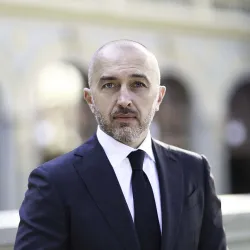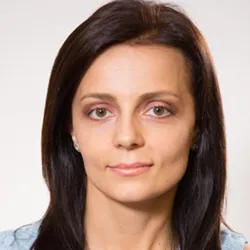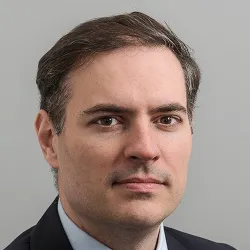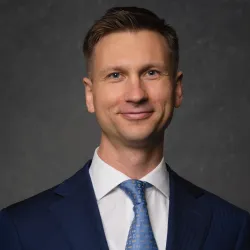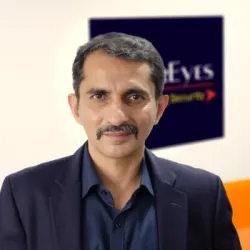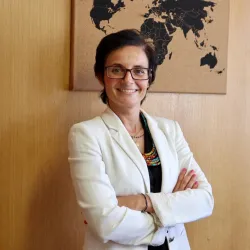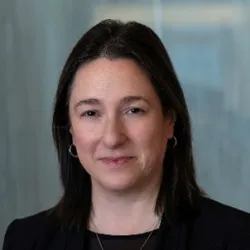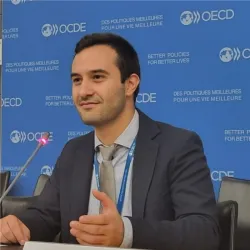2024 agenda
2024 agenda
Agenda 2024
Reserve Management - 12th June
08:15 – 09:15
Registration & breakfast
08:15 - 09:30
09:15 – 09:30
Welcome to the Summer Meetings
09:30 - 09:45
Christopher Jeffery is Editor of Central Banking Publications, which includes the Central Banking Journal, CentralBanking.com and Central Banking On Air. He has more than 15 years of experience covering banking, business, economics, finance and public policy in London, Hong Kong and New York. His interviews include those with Agustín Carstens, Stanley Fisher, Stefan Ingves, Ahmed Alkholifey, Raghuram Rajan, Robert Schiller and Christopher Sims. Chris is Chairman of the Central Banking Awards Committee and is Editor of IFF China Report, a publication offering insight and opinion from China’s top policymakers. Chris was previously Editor of Asia Risk in Hong Kong and Deputy Editor of Risk in London
09:30 – 10:00
Opening keynote speech from Central Banking’s Governor of the year
09:30 - 10:00
Andriy Pyshnyy assumed the position of Governor of the National Bank of Ukraine on 7 October 2022. The Governor manages the NBU's activities within his competence, as defined by the Law of Ukraine On the National Bank of Ukraine, acts on behalf of the NBU, and represents the NBU’s interests in relations with stakeholders without a power of attorney. He also directly oversees the activities of the NBU units responsible for HR management, legal support, risk management, communications, consumer protection in financial services, security, state secret protection, and anti-corruption efforts. Pyshnyy has been working in the financial sector since 2000. From March 2014 to November 2020 he served as the Chairman of the Management Board of Oschadbank JSC. In 2012, Pyshnyy was elected a member of the Ukrainian parliament and the First Deputy Head of Parliamentary Committee on Rules of Procedure, Parliamentary Ethics, and Administration of Verkhovna Rada’s Work. Between 2009 and 2012 he held the position of the Director of Social Strategy Fund LLC. Between August 2007 and June 2009 Pyshnyy served as Deputy Secretary of the National Security and Defense Council of Ukraine. From April 2007, Pyshnyy was the First Deputy Chairman of the Management Board at Ukreximbank OJSC, and later a member of the Supervisory Board of Ukreximbank OJSC and Oschadbank OJSC. From 2003 to 2007 he held positions as a Management Board Member, First Deputy Chairman of the Management Board, and Acting Chairman of the Management Board of Oschadbank OJSC. In 2000, Pyshnyy embarked on his banking career as Head of the Legal Support Department at Oschadbank JSC. Pyshnyi started his career in 1996 as a Teaching Assistant in the Department of Constitutional, Administrative, and Financial Law at Yuriy Fedkovych Chernivtsi National University. He graduated from Chernivtsi National University with a degree in law, and from the Ukrainian Academy of Banking of the National Bank of Ukraine with a degree in banking. He holds a PhD in Law.
10:00 – 10:45
Keynote address
09:45 - 10:30
Nicolas Vincent was appointed external, non-executive Deputy Governor of the Bank of Canada for a two-year term, effective March 2023. In this role, Mr. Vincent will be a member of the Bank’s Governing Council, which is the Bank’s policy-making body responsible for decisions with respect to monetary policy and financial system stability.
Mr. Vincent is a professor of economics in the Department of Applied Economics at HEC Montréal and co-chair of the Business Cycles and Financial Markets research theme at CIRANO (Centre interuniversitaire de recherche en analyse des organisations). Mr. Vincent began his career as an economist at the Department of Finance Canada in 2000. From 2007 to 2012, he was an assistant professor at HEC Montréal, then an associate professor from 2013 to 2021. He was appointed as a full professor in 2021. He has been a visiting and adjunct faculty member and researcher at numerous institutions, including Columbia Business School, INSEAD, the Banque de France and the Kellogg School of Management.
Mr. Vincent was the 2021 recipient of Marcel Dagenais Award for Outstanding Contribution to Economic Research in Quebec and Canada as well as the recipient of a 2022–26 Social Sciences and Humanities Research Council Insight Grant. He was the winner of the Young Researcher of the Year Award at HEC Montréal in 2012 and has won multiple Teacher of the Year awards from HEC Montréal and INSEAD over the course of his career.
Born in Trois-Rivières, Quebec, Mr. Vincent holds a Bachelor of Commerce degree in applied economics from HEC Montréal, a master’s degree in economics from Queen’s University and a PhD in economics from Northwestern University.
10:45 – 11:00
Chairs opening remarks
10:30 - 10:45
Ms. Johnson-Calari created and led the World Bank's Reserves Advisory and Management Program (RAMP), which is one of the world's leading providers of consulting and capacity building services to public sector asset managers. In this capacity, she worked globally with central banks, national pension funds and sovereign wealth funds in strengthening governance and building investment management capacity. She contributed to setting global standards of best practice for the management of sovereign assets and liabilities working with the IMF on the Reserves Management Guidelines and the ISWF's "Santiago Principles". Ms. Johnson-Calari has contributed to several books on the topic of portfolio and risk management and was a contributing author and editor of Sovereign Wealth Management, London: Central Banking Publications, 2008. She is a well-known expert on issues relating to central bank reserves management and portfolio management and has spoken widely at international conferences in both official and private sector fora.
She began her career with the Board of Governors of the Federal Reserve System in banking supervision with a focus on commercial bank asset/liability and risk management issues. She has earned advanced degrees from the Harvard Business School (GMP, 2004) the Johns Hopkins School of Advanced International Studies (SAIS) (MA, 1981) and is a Chartered Financial Analyst (CFA). She currently serves as a consultant to several international financial institutions.
11:00 – 12:00
An asset-and-liability management approach to reserve management
10:45 - 11:45
A presentation of the refined ALM modelling approach for reserve management at the Danish Central Bank. Also, the presentation will give insights into how the central bank have adapted to the changes in the money market environment.
Martin Wagner Toftdahl is Head of Banking and Markets and part of the Group Management at Danmarks Nationalbank, with overall the responsibility for monetary policy implementation, central bank payment systems and the Danish debt management office. This also includes reserve management. Martin has been employed with Danmarks Nationalbank since 2021. Previously, Martin has had various roles in Group Treasury at Nordea Group and latest as Head of Funding and Liquidity. Prior to that Martin has worked as economist at the European Central Bank.
12:00 – 12:30
Networking break
11:45 - 12:15
12:30 – 13:30
Central bank monetary policy & reserve management in an era of uncertainty and change
12:15 - 13:15
Sponsored by:

- Impact of geopolitics and domestic policies on economics, including the uncertainty surrounding the 2024 elections and increased great power rivalry in economics and finance
- Debate between structurally higher inflation or renewed lowflation due to technology, productivity, and demographics, and its implications for monetary policy rates, bond yields, and term premia
- Potential for a multipolar currency system, considerations regarding Russia's FX reserves, and the shift towards national currencies in payments and its effects on central bank balance sheets
- Discussion on the size and composition of central bank balance sheets, and considerations for reserve holding central banks: whether to enlarge, reduce, or diversify international reserves
Arnab Das joined Invesco in London in 2015 as head of EMEA and EM macro research and has been global macro strategist, EMEA since 2018, engaging on economics, policy and markets with institutional and official investors, governments, the IMF and other official institutions, as well as Invesco investment teams. Arnab has 30 years of investment industry experience, including co-head of economic research and strategy, Roubini Global Economics (2009-2013); co-head, global economics and strategy, head of FX strategy and head of EM research, Dresdner Kleinwort (2001-09); head of EMEA EM research and senior EM strategist, JP Morgan (1992-2001). He has provided policy advice and views on economics, markets, communication, sovereign risk and ratings to policymakers in Argentina, Brazil, Mexico, Russia, Turkey, South Africa, India, Indonesia, South Korea, governments affected by the Eurozone crisis, the IMF and the US Treasury. Arnab studied at Princeton (AB) and LSE (PhD). His research interests include economics, economic and financial history, geopolitics and geo-economics.
13:30 – 14:45
Networking lunch
13:30 - 14:30
14:45 – 15:15
Keynote address
14:30 - 15:15
As the ECB reflects on its digitalisation journey, guided by the SSM Digitalisation Blueprint, significant strides have been achieved in modernising operations and enhancing efficiency in banking supervision. The new SSM Tech Strategy for 2024-2028 outlines ambitious goals, emphasising the importance of innovation in adapting to evolving industry landscapes and reinforcing the ECB's regulatory framework.
Elizabeth McCaul is a Member of the Supervisory Board of the European Central Bank. Her areas of responsibility include the Supervisory Review and Evaluation Process (SREP), internal governance and risk management, the digital agenda, the training program of the SSM as well as diversity and inclusion. She focuses on prudential implications in dynamic areas such as the oversight of FinTech and supervision of crypto-assets, cyber and IT risk and the digital transformation of the banking sector. She joined the NY State Banking Department as First Deputy in 1995 and served as NY Superintendent of Banks from 1997-2003. She was elected Chair of the Conference of State Bank Supervisors, served as a Member of the Federal Financial Institutions Examinations Council, on the Joint Forum for Financial Conglomerates and as an Instructor for Financial Stability Institute at the BIS.
Before joining the ECB, she worked for Promontory Financial Group where she founded the New York office and served as the Partner-in-Charge, as CEO and Chair of Europe, and Global Head of Strategy.
For the first decade of her career, she was an investment banker at Goldman Sachs.
15:15 – 15:45
Networking break
15:15 - 15:45
15:45 – 16:45
Working group
A chance for engagement and discussion on a topic
15:45 - 16:45
The room will be split into groups to focus on the following topics, and then feedback to the wider room:
In response to USD sanctions and freezing of the Bank of Russia's reserves, central banks particularly from non-allied or hostile countries have called for a diversification away from the USD for reserve assets, invoicing and global payments. In actuality, the USD has, however, recently stabilized as a share of global reserves. Global payments, however, is a different story and there is a clear trend towards the use of RMB and other currencies for global trade following on Russian sanctions.
- What are the pros and cons to moving away from the USD towards a multi-currency system for international trade and payments?
- Will this trend foreshadow a shift of the currency composition of global reserves?
- How might wholesale CBDCs affect the currency used for global payments?
- Is there a risk of the international financial system fragmenting into parallel systems, with one outside of the reach of sanctions and asset freezes?
Ms. Johnson-Calari created and led the World Bank's Reserves Advisory and Management Program (RAMP), which is one of the world's leading providers of consulting and capacity building services to public sector asset managers. In this capacity, she worked globally with central banks, national pension funds and sovereign wealth funds in strengthening governance and building investment management capacity. She contributed to setting global standards of best practice for the management of sovereign assets and liabilities working with the IMF on the Reserves Management Guidelines and the ISWF's "Santiago Principles". Ms. Johnson-Calari has contributed to several books on the topic of portfolio and risk management and was a contributing author and editor of Sovereign Wealth Management, London: Central Banking Publications, 2008. She is a well-known expert on issues relating to central bank reserves management and portfolio management and has spoken widely at international conferences in both official and private sector fora.
She began her career with the Board of Governors of the Federal Reserve System in banking supervision with a focus on commercial bank asset/liability and risk management issues. She has earned advanced degrees from the Harvard Business School (GMP, 2004) the Johns Hopkins School of Advanced International Studies (SAIS) (MA, 1981) and is a Chartered Financial Analyst (CFA). She currently serves as a consultant to several international financial institutions.
16:45 – 17:00
Chair's closing remarks
16:45 - 17:00
Ms. Johnson-Calari created and led the World Bank's Reserves Advisory and Management Program (RAMP), which is one of the world's leading providers of consulting and capacity building services to public sector asset managers. In this capacity, she worked globally with central banks, national pension funds and sovereign wealth funds in strengthening governance and building investment management capacity. She contributed to setting global standards of best practice for the management of sovereign assets and liabilities working with the IMF on the Reserves Management Guidelines and the ISWF's "Santiago Principles". Ms. Johnson-Calari has contributed to several books on the topic of portfolio and risk management and was a contributing author and editor of Sovereign Wealth Management, London: Central Banking Publications, 2008. She is a well-known expert on issues relating to central bank reserves management and portfolio management and has spoken widely at international conferences in both official and private sector fora.
She began her career with the Board of Governors of the Federal Reserve System in banking supervision with a focus on commercial bank asset/liability and risk management issues. She has earned advanced degrees from the Harvard Business School (GMP, 2004) the Johns Hopkins School of Advanced International Studies (SAIS) (MA, 1981) and is a Chartered Financial Analyst (CFA). She currently serves as a consultant to several international financial institutions.
17:00 – 18:30
Cocktail reception
17:00 - 18:30
18:30 – 22:30
Central Banking Awards 2024
18:30 - 21:30
Reserve Management - 13th June
08:15 – 09:30
Registration & breakfast
08:15 - 09:30
09:30 – 09:45
Welcome to day two of the Summer Meetings
09:30 - 09:45
Christopher Jeffery is Editor of Central Banking Publications, which includes the Central Banking Journal, CentralBanking.com and Central Banking On Air. He has more than 15 years of experience covering banking, business, economics, finance and public policy in London, Hong Kong and New York. His interviews include those with Agustín Carstens, Stanley Fisher, Stefan Ingves, Ahmed Alkholifey, Raghuram Rajan, Robert Schiller and Christopher Sims. Chris is Chairman of the Central Banking Awards Committee and is Editor of IFF China Report, a publication offering insight and opinion from China’s top policymakers. Chris was previously Editor of Asia Risk in Hong Kong and Deputy Editor of Risk in London
09:45 – 10:30
Taming inflation from 18 to 2% and paving the way for ESG financing
09:45 - 10:30
The Czech economy faced significant challenges from COVID and energy price shocks, leading to a peak inflation of 18% in September 2022. However, the Czech National Bank successfully restored price stability by January 2024.
Governor Ales Michl will address the monetary policy strategy aimed at controlling inflation, focusing on issues like euroisation of corporate loans and the role of foreign exchange. He will also outline CNB's measures to prevent future inflation spikes and discuss the interplay between monetary and fiscal policy through an institutional economics lens. Finally, he will elaborate on CNB's approach to ESG finance within the context of institutional economics and its role in combating climate change.
Aleš Michl was born in Prague on 18 October 1977. He obtained a Ph.D. in finance at the University of Economics in Prague in 2020. He graduated from the University of Economics with an MSc (Ing.) degree in 2002. He completed a training programme on game theory and the psychology of decision-making at the Summer School at the London School of Economics and Political Science in 2005 and took an investment portfolio management course at the Wharton School in Philadelphia in 2009. He started his professional career as an economic journalist during his studies and later as an economic adviser to Deputy Prime Minister for the Economy Martin Jahn. He worked as an economic and investment strategist at Raiffeisenbank in 2006–2015. In 2014–2018, he was an external economic adviser to the Czech Ministry of Finance and later the Czech Prime Minister Andrej Babiš, specialising in macroeconomic analysis and government debt stabilisation. He founded Michl Fund Management s.r.o. in 2016, which subsequently co-founded Robot Asset Management SICAV a.s., which carries on the activities of an investment fund for qualified investors with the Quant sub-fund. He terminated these activities on the date of commencement of his position in the CNB Board. Mr Michl is the author of numerous columns and articles in newspapers, journals and magazines. He also wrote the books MICHLiq - průvodce eckonomií a investicemi (MICHLiq – a guide to economics and investment), Jestřábi a holubice (Hawks and Doves) and Reset ekonomiky (How to Reset the Economy). He is not and has never been a member of a political party. Aleš Michl was appointed a member of the CNB Bank Board on 1 December 2018. The President appointed him CNB Governor for a term of six years with effect from 1 July 2022.
10:30 – 10:45
Chairs opening remarks
10:30 - 10:45
Ms. Johnson-Calari created and led the World Bank's Reserves Advisory and Management Program (RAMP), which is one of the world's leading providers of consulting and capacity building services to public sector asset managers. In this capacity, she worked globally with central banks, national pension funds and sovereign wealth funds in strengthening governance and building investment management capacity. She contributed to setting global standards of best practice for the management of sovereign assets and liabilities working with the IMF on the Reserves Management Guidelines and the ISWF's "Santiago Principles". Ms. Johnson-Calari has contributed to several books on the topic of portfolio and risk management and was a contributing author and editor of Sovereign Wealth Management, London: Central Banking Publications, 2008. She is a well-known expert on issues relating to central bank reserves management and portfolio management and has spoken widely at international conferences in both official and private sector fora.
She began her career with the Board of Governors of the Federal Reserve System in banking supervision with a focus on commercial bank asset/liability and risk management issues. She has earned advanced degrees from the Harvard Business School (GMP, 2004) the Johns Hopkins School of Advanced International Studies (SAIS) (MA, 1981) and is a Chartered Financial Analyst (CFA). She currently serves as a consultant to several international financial institutions.
10:45 – 11:45
Reserve management trends: addressing geopolitical risks, bond market turbulence, diversification challenges and AI innovations
14:30 - 15:30
Sponsored by:

- Gain exclusive insights from HSBC's landmark survey of 91 central banks
- What are the most significant risks reserve managers face in 2024?
- How are reserve managers incorporating geopolitical risk into their portfolios?
- With heightened uncertainty around the path of interest rates, what strategies are being adopted?
- What are the latest trends in attitudes to sustainability, de-dollarisation and currency diversification?
- How is the use of AI to optimise operations viewed and where can this technology best be utilised?
Responsible for tactical asset allocation across global rates, credit and equity markets and developing the tactical asset allocation function within the new investment framework of National Bank of Slovakia. Has been active in the design and implementation of the new investment framework, strategy and strategic asset allocation of NBS. Was responsible for managing multi-currency fixed income portfolios invested in government bonds, SSA, covered bonds and corporates in previous portfolio management roles at NBS. Serves as National Authority Representative in the Covered Bond Label Advisory Council. Gained international experience as covered bond trader at Credit Agricole CIB, London branch, making markets across the whole EUR and USD covered bond universe. Started career as an ALM specialist at CSOB Financial Group in Bratislava (part of KBC Group). Graduated from Comenius University, Faculty of management in Bratislava, Slovakia.
Tom is responsible for the HSBC Group’s commercial relationships with Middle East and North African Central Banks. He also has oversite of the business with large Asian and Latin American Central Banks transacted in Europe. Tom plays an influential role in HSBC’s thought leadership for the Central Bank sector, including HSBC’s Sovereign Investor Forum and HSBC Reserve Management Trends. Tom has over 15 years’ experience in finance and has worked for HSBC since 2011. Prior to his work with Central Banks, Tom was a relationship manager for Asset Managers and Securities Firms.
11:45 – 12:15
Networking break
11:45 - 12:15
12:15 – 13:15
Reserve renaissance: shaping the future of de-dollarisation and next-generation allocation strategies
12:15 - 13:15
Sponsored by:

- Analyse global shifts in reserve management away from traditional currencies
- Discuss implications for economic stability and geopolitical landscapes
- Explore dynamic strategies amidst changing global dynamics
- Balance risk and return in diversified reserve portfolios
- Assess the role of non-traditional reserves such as gold, ESG investments, and blockchain-based assets
- Evaluate potential enhancements in portfolio diversification and risk management
- Examine criteria and methodologies guiding reserve managers' investment decisions incorporating sustainability metrics, technological advancements, and macroeconomic trends
Ebru has specialized in fixed income markets for the region since 2008, responsible for localizing Bloomberg’s products, multi-class asset product development and business strategy including Islamic Finance. Prior to this, she managed Bloomberg Sales for Russia, CIS (the new name for former Soviet republics), Eastern Europe, the Balkans and Turkey. Ebru started her career in Solomon Brothers New York, as a Debt Capital Markets analyst focusing on sovereign debt issuance and asset liability advisory.
Ebru has authored a number of articles – topics include the introduction of VAT in the GCC and the Pakistan economy. She has an MSc in finance from Lancaster University in the United Kingdom.
Ebru also works closely with exchanges, Central Banks and Ministry of Finances on formation of liquidity platforms in local markets in the fixed income space.
Mike McMorrow is a Senior Asset Management Specialist with Reserve Management Advisory Services in the BIS Banking Department. In this capacity, he works with internal stakeholders and central bank reserve managers on strategic asset allocation, sustainability, and other analytical challenges. Prior to the BIS, he spent ten years at the Federal Reserve Bank of New York in a variety of capacities, including management roles overseeing foreign reserves management, monetary policy implementation in the US Treasury and mortgage markets, as well as market intelligence and analysis. He also spent a year as a portfolio manager at the Bank of England helping to manage the UK’s reserves. Prior to his central bank experience, he spent two years at Macroeconomic Advisers, a forecasting firm, and received degrees from the University of California, San Diego and the University of Notre Dame.
Kurtuluş Taşkale Diamondopoulos, Director, Central Banks and Public Policy, World Gold Council. She works with official sector investment managers at central banks and SWFs around the world exploring the case for gold as a reserve asset as well as working on a wide variety of policy initiatives that affect the gold market.
Before joining the Council in 2016, she worked at the Central Bank of Turkey for 25 years. She acted in a leading role in the reserve and risk management as well as structuring the acceptance of gold within the framework of Reserve Option Mechanism. She holds MA in International Economics and Finance degree from Brandeis University, USA.
I have been working in financial markets industry from 2006. I have spent my career focusing on fixed income asset class mainly helping to manage portfolios for private and public sector companies. Since 2014 I am working for Bank of Lithuania, a central bank of a country. I have spent 6 years in Tactical asset allocation team and for the last 4 years I work in Trading division. Recently, I have been focusing on CNY portfolio management.
I have graduated in 2006 from Kaunas University of Technology and hold MSc degree in Economics.
13:15 – 14:30
Networking lunch
13:15 - 14:30
14:30 – 15:30
Dynamic market landscapes: the interplay of strategic and tactical asset allocation
14:30 - 15:30
Sponsored by:

- Identifying the pivotal role and application of strategic asset allocation in preserving portfolio resilience over the long term
- Strategies for portfolio managers to proactively prepare for and leverage tactical asset allocation opportunities
- Balancing strategic vision with tactical agility to optimise investment outcomes
- Leveraging tactical asset allocation to navigate macro volatility and capitalise on emerging opportunities
Jozef is an experienced investment professional focusing on Fixed Income and Equities. He joined NBS in 2022 to oversee monetary policy operations and reserve management, he is member of ECB Monetary Operations Committee (MOC). Prior to joining National Bank of Slovakia he held risk taking positions in London with Blackrock and Credit Agricole. He is CFA and FRM charter holder and holds masters degree from Comenius University in Bratislava.
Roberts Grava is Chief Executive Officer of Crown Agents Investment Management. He brings over 25 years of global institutional asset management experience to the firm, having focused mainly on sovereign investment institutions and official sector investment issues. He has held several senior roles in public and private sector institutions, including Head of Official Institutions, Institutional Solutions and Advisory and Managing Director, Fixed Income at J.P. Morgan Asset Management, Head of Quantitative Strategies, Risk and Analytics and Engagement Manager, Reserves Advisory and Management Program (RAMP) at the World Bank. Previously, he had spent 11 years as Chief Investment Officer, Head of Reserves Management and Market Operations and Member of the Executive Board at Latvijas Banka, the central bank of Latvia. He has a degree in Economics from Columbia University and is a CFA charterholder.
Joachim Coche is Head of Middle Office, Banking Systems and Operational Services at the Bank for International Settlements (BIS). This division provides operational, technological, and analytical support to the BIS Banking Department. He joined the BIS in 2007 as an Asset Management Specialist, supporting central bank clients in strategic asset allocation, asset liability management, and outsourcing. Before this, he worked for the World Bank Treasury in Washington, DC, and the European Central Bank in Frankfurt. At the World Bank, he advised central bank clients and other sovereign wealth managers in their asset allocation process. At the ECB, he was responsible for developing asset allocation strategies for the ECB’s foreign reserves and domestic assets. From 1996 to 2000, he worked for DZ Bank in Frankfurt. Joachim holds a Master's and Doctorate in Economics from the University of Osnabrück, Germany. He has written several articles and working papers in the fields of asset allocation, reserves management, and pension fund management. He has also edited books on risk management for central banks and asset allocation for institutional investors.
15:30 – 16:00
Chairs closing remarks
15:30 - 16:00
Ms. Johnson-Calari created and led the World Bank's Reserves Advisory and Management Program (RAMP), which is one of the world's leading providers of consulting and capacity building services to public sector asset managers. In this capacity, she worked globally with central banks, national pension funds and sovereign wealth funds in strengthening governance and building investment management capacity. She contributed to setting global standards of best practice for the management of sovereign assets and liabilities working with the IMF on the Reserves Management Guidelines and the ISWF's "Santiago Principles". Ms. Johnson-Calari has contributed to several books on the topic of portfolio and risk management and was a contributing author and editor of Sovereign Wealth Management, London: Central Banking Publications, 2008. She is a well-known expert on issues relating to central bank reserves management and portfolio management and has spoken widely at international conferences in both official and private sector fora.
She began her career with the Board of Governors of the Federal Reserve System in banking supervision with a focus on commercial bank asset/liability and risk management issues. She has earned advanced degrees from the Harvard Business School (GMP, 2004) the Johns Hopkins School of Advanced International Studies (SAIS) (MA, 1981) and is a Chartered Financial Analyst (CFA). She currently serves as a consultant to several international financial institutions.
Innovation - 12th June
08:15 – 09:15
Registration & breakfast
08:15 - 09:30
09:15 – 09:30
Welcome to the Summer Meetings
09:30 - 09:45
Christopher Jeffery is Editor of Central Banking Publications, which includes the Central Banking Journal, CentralBanking.com and Central Banking On Air. He has more than 15 years of experience covering banking, business, economics, finance and public policy in London, Hong Kong and New York. His interviews include those with Agustín Carstens, Stanley Fisher, Stefan Ingves, Ahmed Alkholifey, Raghuram Rajan, Robert Schiller and Christopher Sims. Chris is Chairman of the Central Banking Awards Committee and is Editor of IFF China Report, a publication offering insight and opinion from China’s top policymakers. Chris was previously Editor of Asia Risk in Hong Kong and Deputy Editor of Risk in London
09:30 – 10:00
Opening keynote speech from Central Banking’s Governor of the year
09:30 - 10:00
Andriy Pyshnyy assumed the position of Governor of the National Bank of Ukraine on 7 October 2022. The Governor manages the NBU's activities within his competence, as defined by the Law of Ukraine On the National Bank of Ukraine, acts on behalf of the NBU, and represents the NBU’s interests in relations with stakeholders without a power of attorney. He also directly oversees the activities of the NBU units responsible for HR management, legal support, risk management, communications, consumer protection in financial services, security, state secret protection, and anti-corruption efforts. Pyshnyy has been working in the financial sector since 2000. From March 2014 to November 2020 he served as the Chairman of the Management Board of Oschadbank JSC. In 2012, Pyshnyy was elected a member of the Ukrainian parliament and the First Deputy Head of Parliamentary Committee on Rules of Procedure, Parliamentary Ethics, and Administration of Verkhovna Rada’s Work. Between 2009 and 2012 he held the position of the Director of Social Strategy Fund LLC. Between August 2007 and June 2009 Pyshnyy served as Deputy Secretary of the National Security and Defense Council of Ukraine. From April 2007, Pyshnyy was the First Deputy Chairman of the Management Board at Ukreximbank OJSC, and later a member of the Supervisory Board of Ukreximbank OJSC and Oschadbank OJSC. From 2003 to 2007 he held positions as a Management Board Member, First Deputy Chairman of the Management Board, and Acting Chairman of the Management Board of Oschadbank OJSC. In 2000, Pyshnyy embarked on his banking career as Head of the Legal Support Department at Oschadbank JSC. Pyshnyi started his career in 1996 as a Teaching Assistant in the Department of Constitutional, Administrative, and Financial Law at Yuriy Fedkovych Chernivtsi National University. He graduated from Chernivtsi National University with a degree in law, and from the Ukrainian Academy of Banking of the National Bank of Ukraine with a degree in banking. He holds a PhD in Law.
10:00 – 10:45
Keynote address
09:45 - 10:30
Nicolas Vincent was appointed external, non-executive Deputy Governor of the Bank of Canada for a two-year term, effective March 2023. In this role, Mr. Vincent will be a member of the Bank’s Governing Council, which is the Bank’s policy-making body responsible for decisions with respect to monetary policy and financial system stability.
Mr. Vincent is a professor of economics in the Department of Applied Economics at HEC Montréal and co-chair of the Business Cycles and Financial Markets research theme at CIRANO (Centre interuniversitaire de recherche en analyse des organisations). Mr. Vincent began his career as an economist at the Department of Finance Canada in 2000. From 2007 to 2012, he was an assistant professor at HEC Montréal, then an associate professor from 2013 to 2021. He was appointed as a full professor in 2021. He has been a visiting and adjunct faculty member and researcher at numerous institutions, including Columbia Business School, INSEAD, the Banque de France and the Kellogg School of Management.
Mr. Vincent was the 2021 recipient of Marcel Dagenais Award for Outstanding Contribution to Economic Research in Quebec and Canada as well as the recipient of a 2022–26 Social Sciences and Humanities Research Council Insight Grant. He was the winner of the Young Researcher of the Year Award at HEC Montréal in 2012 and has won multiple Teacher of the Year awards from HEC Montréal and INSEAD over the course of his career.
Born in Trois-Rivières, Quebec, Mr. Vincent holds a Bachelor of Commerce degree in applied economics from HEC Montréal, a master’s degree in economics from Queen’s University and a PhD in economics from Northwestern University.
10:45 – 11:00
Chairs opening remarks
10:30 - 10:45
Peter Faykiss is the Director of Digitalization Directorate at the Magyar Nemzeti Bank (the central bank of Hungary), where he is responsible for FinTech, digital finance and digital currencies/CBDC topics. Before entering the digital finance area, he gained experience in financial stability, financial regulation and macroprudential policy. As the Head of Division for Banking Regulations of Ministry for National Economy he was responsible for the domestic implementation of the European regulatory package CRD IV in 2013. In 2014 he was appointed as the Head of Macroprudential Policy Department of the MNB, from 2017 he served as the Director of Macroprudential Directorate. Mr. Faykiss graduated in 2009 from Corvinus University of Budapest and he holds a PhD in Finance from Corvinus University of Budapest.”
11:00 – 12:00
FedNow and the road to transforming the US payments system
10:45 - 11:45
- Join the Federal Reserve Bank’s Chief Payments Executive Mark Gould for his candid reflections on the process of building FedNow – the Fed’s instant payment service launched in 2023
- Stick around for a conversation covering lessons learned between Mark and his FedNow colleagues Nick Stanescu and Dan Anthony
- Round out the session with questions for the presenters
As the chief payments executive for Federal Reserve Financial Services, Mark Gould is responsible for the Federal Reserve System’s full portfolio of retail payments, wholesale payments, instant payments, and cash services provided to financial institutions across the United States. Mark is based in San Francisco with diverse teams in each of the twelve Federal Reserve Banks, and he is a frequent speaker at industry events and conferences around the world.
Mark has provided executive leadership to a range of Federal Reserve Bank and System functions at the intersection of payments, technology, strategy, and operations throughout his career. On the way to his current role, he previously served as CIO, COO, and interim CEO for the San Francisco Fed, and led the Fed’s national cash business.
Mark holds a bachelor’s degree in economics from Pacific Lutheran University and a master of science degree in applied economics from Seattle University.
As the chief FedNow executive, Nick has responsibility for running the FedNow Service for the Federal Reserve. This includes leading the technology, product, and program management functions supporting the FedNow Service; expanding the FedNow Service’s network and volume; delivering on the service roadmap; and coordinating with System functions to support the FedNow infrastructure.
Prior to his current role, Nick served as senior vice president and FedNow business executive for the FedNow Service at the Federal Reserve Bank of Boston. In this role, he led FedNow’s product management, industry readiness, business integration, business operations teams.
Nick began his career at the Fed in 2003 at the Federal Reserve Bank of New York before transitioning to the Boston Bank in 2021. Over the course of his career, he has held several executive and senior level roles, including serving as Head of Payments Product Management where he had business responsibility for Fedwire Funds and National Settlement Services on behalf of the 12 Federal Reserve Banks. He also has served as the Information Security Officer of the New York Bank and the managing officer of the Federal Reserve’s National Incident Response Team.
Nick earned a bachelor’s degree from Rutgers University and an MBA degree from New York University, Stern School of Business
Dan Anthony is a technology leader with delivery experience around the world. He is CIO for FedNow, the new Federal Instant Payments rail which launched in July 2023. Graduating from Georgia Tech with a master’s degree in Cybersecurity and the University of Auckland in New Zealand with degrees in Arts and Information Systems, he has more than ten years of experience in Technology consulting, and has delivered large scale technology programs in NZ, Australia, and the US, in a variety of industries, including Government, Manufacturing, High Tech, and Financial Services.
Dan has balanced his career focus between engineering and operations, leading global enterprise Technical Operations organizations at Google for ten years, supporting high scale mission-critical systems, and driving new product and product innovations. He has also built out global IT capability in the high-growth startup world, and run large scale product engineering teams.
12:00 – 12:30
Networking break
11:45 - 12:15
12:30 – 13:30
Fortifying cyber resilience in central banking operations
12:15 - 13:15
- Exploring the latest developments in cyber threats targeting the financial sector, including considerations of regulatory changes such as DORA
- Assessing weaknesses in IT asset management, deficiencies in asset protection, and their implications for cyber resilience in central banking
- Strategies for implementing secure systems, enhancing network segmentation, and implementing effective access control measures for safeguarding
- Enhancing incident detection, response, and recovery readiness, while championing cybersecurity compliance, including DORA readiness.
Andreas Vogel is an expert in IT and cyber risk, currently serving as the Head of Group IT Risk in the On-site Inspection Division at Deutsche Bundesbank.
With extensive experience in the field, Andreas worked on the development of Digital Operational Resilience Act and is now preparing DORA on-site inspections. In addition, he is an active member of several international working groups on IT risk within the EU’s Single Supervisory Mechanism (SSM) and the European Banking Authority (EBA). In these roles, he has significantly contributed to the development of numerous IT-related policies and has overseen their implementation in Germany.
Before joining Deutsche Bundesbank, Andreas accumulated valuable experience in both the private and public banking sectors. He holds an MBA from Coburg University and is a Certified Information Systems Security Professional (CISSP).
As Deputy Director, Supervision (FinTech) at the Bermuda Monetary Authority (Authority), George directs and manages Supervisory teams and individuals to meet the goals and objectives of the FinTech Department. In his current role, he leads a team that develops and implements tools, capabilities and technologies to support the supervisory activities of the FinTech Department. His team also provides oversight to the Authority’s regulatory sandbox and innovation hub.
Currently, George sits at both the Insurance and FinTech Assessment and Licensing Committees to review and approve licensing applications for InsurTech and FinTech sectors. He also represents the Authority in relevant international cooperation forums and has spoken in conferences and other public events in various topics such as but not limited to financial services innovation, cyber risk, artificial intelligence and operational resilience.
George provides advice, guidance and direction on all relevant matters pertaining to the Authority’s legislative and regulatory framework for FinTech and InsurTech sector, and makes strategic recommendations to the Chief FinTech Officer and Executive Management. He also leads various strategic initiatives with the aim of cascading innovation and creating efficiencies across the Authority.
George joined the Authority in 2015 and was responsible for supervising Groups and Large Commercial Insurers for four years in the Insurance Department before moving to the FinTech Department.
Prior to joining the Authority, George served as Assistant Vice President and Senior Account Manager at CTC Insurance Management (Bermuda), and before that, as a Senior Portfolio Accountant at Caceis (Bermuda) Limited. Before coming to Bermuda, George served as Audit Incharge at Ernst and Young Philippines.
Mr. Alayon is a Certified Public Accountant (Philippines and Bermuda) and a Chartered Property Casualty Underwriter. In addition, he holds designations and certifications in various areas, including cyber risk management, cybersecurity standards, internal audit, AML and Sanctions compliance, and emerging areas such as insurance data analytics, blockchain/distributed ledger technology and other related applications, smart contract programming, artificial intelligence and machine learning, and various RegTech and SupTech applications.
With over a decade of extensive background in IT Auditing, cybersecurity, and network administration. My career journey has enhanced my skills in identifying and reporting on IT risks, performing comprehensive audits, and ensuring robust network infrastructure management. I am dedicated to enhancing IT governance and contributing to organizational resilience and efficiency. Throughout my career, I have demonstrated a commitment to excellence in IT governance, risk management, and security. My goal is to continue leveraging my skills and experience to support organizations in achieving their IT and audit objectives while ensuring compliance and mitigating risks.
Bachelor’s degree in computer Engineer | Angola Methodist University
March 1, 2009 – December 30, 2013, | Luanda, Angola
Senior IT Auditor | Angola National Bank
July 17, 2017 – Present | Luanda, Angola
Network Administrator | Angola Telecom Company
December 20, 2010 – July 10, 2017, | Luanda, Angola
Skills:
- Expertise in Cyber Risk Governance, Risk Assessment and Risk Management Frameworks.
- Proficient in COBIT frameworks.
- Certified Information Systems Auditor (CISA)
- Participation Certificate, Certified Ethical hacking (CEH).
- Skilled in data analytics and conducting internal, external, and GRC audits.
- Fraud Investigation.
- Knowledgeable in ISO 27001 standards and compliance.
- QAIP (Quality Assurance and Improvement Program), Assessment of the whole Internal Audit Function.
Membership:
- ISACA (Information System and Control Association)
- IIA (Institute of Internal Auditors).
Karmendra Kohli is a cybersecurity leader with over 23 years of experience in information/cyber security and information risk management. As the CEO and co-founder of SecurEyes, Karmendra has transformed a two-person start-up into a global cybersecurity company, known for delivering cutting-edge security solutions tailored to complex sectors such as finance, government, and healthcare.
With a Master's in Computer Applications and advanced certifications including CISSP, CISA, CRISC, and CISM, he combines technical expertise with a deep understanding of strategic business needs.
Under Karmendra's leadership, SecurEyes has become a trusted partner for over 700 clients across 12 countries, including prominent names in both the public and private sectors. His focus on operational excellence and client-centered solutions has driven the company to conduct more than 14,000 security assessments and gain accolades for several global projects.
A recognised figure in cybersecurity, Karmendra regularly speaks at prominent conferences, sharing insights on the evolving cyber threat landscape and innovations in cyber resilience. He has also served as an advisor to senior management and boards of directors, helping organizations shape their cybersecurity strategies in the face of a rapidly changing threat environment.
Karmendra’s mission is to empower organisations with secure, adaptive, and compliant digital ecosystems. He is passionate about fostering a culture of digital trust and resilience, particularly in critical infrastructure sectors. Looking forward, he aims to further SecurEyes’ global reach, supporting enterprises and governments in their cybersecurity transformation journeys while developing future leaders in the information security industry.
13:30 – 14:45
Networking lunch
13:30 - 14:30
14:45 – 15:15
Keynote address: SSM digitalisation – from exploration to full-scale adoption
14:30 - 15:15
As the ECB reflects on its digitalisation journey, guided by the SSM Digitalisation Blueprint, significant strides have been achieved in modernising operations and enhancing efficiency in banking supervision. The new SSM Tech Strategy for 2024-2028 outlines ambitious goals, emphasising the importance of innovation in adapting to evolving industry landscapes and reinforcing the ECB's regulatory framework.
Elizabeth McCaul is a Member of the Supervisory Board of the European Central Bank. Her areas of responsibility include the Supervisory Review and Evaluation Process (SREP), internal governance and risk management, the digital agenda, the training program of the SSM as well as diversity and inclusion. She focuses on prudential implications in dynamic areas such as the oversight of FinTech and supervision of crypto-assets, cyber and IT risk and the digital transformation of the banking sector. She joined the NY State Banking Department as First Deputy in 1995 and served as NY Superintendent of Banks from 1997-2003. She was elected Chair of the Conference of State Bank Supervisors, served as a Member of the Federal Financial Institutions Examinations Council, on the Joint Forum for Financial Conglomerates and as an Instructor for Financial Stability Institute at the BIS.
Before joining the ECB, she worked for Promontory Financial Group where she founded the New York office and served as the Partner-in-Charge, as CEO and Chair of Europe, and Global Head of Strategy.
For the first decade of her career, she was an investment banker at Goldman Sachs.
15:15 – 15:45
Networking break
15:15 - 15:45
15:45 – 16:45
Working group
A chance for engagement and discussion on a topic
15:45 - 16:45
The room will be split into groups to focus on the following topics, and then feedback to the wider room:
- How can a central bank change their organisational culture to embrace digitalisation?
- What are the pros and cons of transitioning to an agile model?
- Addressing challenges by investing in employee training, and streamlining operational processes
Peter Faykiss is the Director of Digitalization Directorate at the Magyar Nemzeti Bank (the central bank of Hungary), where he is responsible for FinTech, digital finance and digital currencies/CBDC topics. Before entering the digital finance area, he gained experience in financial stability, financial regulation and macroprudential policy. As the Head of Division for Banking Regulations of Ministry for National Economy he was responsible for the domestic implementation of the European regulatory package CRD IV in 2013. In 2014 he was appointed as the Head of Macroprudential Policy Department of the MNB, from 2017 he served as the Director of Macroprudential Directorate. Mr. Faykiss graduated in 2009 from Corvinus University of Budapest and he holds a PhD in Finance from Corvinus University of Budapest.”
16:45 – 17:00
Chair's closing remarks
16:45 - 17:00
Peter Faykiss is the Director of Digitalization Directorate at the Magyar Nemzeti Bank (the central bank of Hungary), where he is responsible for FinTech, digital finance and digital currencies/CBDC topics. Before entering the digital finance area, he gained experience in financial stability, financial regulation and macroprudential policy. As the Head of Division for Banking Regulations of Ministry for National Economy he was responsible for the domestic implementation of the European regulatory package CRD IV in 2013. In 2014 he was appointed as the Head of Macroprudential Policy Department of the MNB, from 2017 he served as the Director of Macroprudential Directorate. Mr. Faykiss graduated in 2009 from Corvinus University of Budapest and he holds a PhD in Finance from Corvinus University of Budapest.”
17:00 – 18:30
Cocktail reception
17:00 - 18:30
18:30 – 22:30
Central Banking Awards 2024
18:30 - 21:30
Innovation - 13th June
08:15 – 09:30
Registration & breakfast
08:15 - 09:30
09:30 – 09:45
Welcome to day two of the Summer Meetings
09:30 - 09:45
Christopher Jeffery is Editor of Central Banking Publications, which includes the Central Banking Journal, CentralBanking.com and Central Banking On Air. He has more than 15 years of experience covering banking, business, economics, finance and public policy in London, Hong Kong and New York. His interviews include those with Agustín Carstens, Stanley Fisher, Stefan Ingves, Ahmed Alkholifey, Raghuram Rajan, Robert Schiller and Christopher Sims. Chris is Chairman of the Central Banking Awards Committee and is Editor of IFF China Report, a publication offering insight and opinion from China’s top policymakers. Chris was previously Editor of Asia Risk in Hong Kong and Deputy Editor of Risk in London
09:45 – 10:30
Taming inflation from 18 to 2% and paving the way for ESG financing
09:45 - 10:30
The Czech economy faced significant challenges from COVID and energy price shocks, leading to a peak inflation of 18% in September 2022. However, the Czech National Bank successfully restored price stability by January 2024.
Governor Ales Michl will address the monetary policy strategy aimed at controlling inflation, focusing on issues like euroisation of corporate loans and the role of foreign exchange. He will also outline CNB's measures to prevent future inflation spikes and discuss the interplay between monetary and fiscal policy through an institutional economics lens. Finally, he will elaborate on CNB's approach to ESG finance within the context of institutional economics and its role in combating climate change.
Aleš Michl was born in Prague on 18 October 1977. He obtained a Ph.D. in finance at the University of Economics in Prague in 2020. He graduated from the University of Economics with an MSc (Ing.) degree in 2002. He completed a training programme on game theory and the psychology of decision-making at the Summer School at the London School of Economics and Political Science in 2005 and took an investment portfolio management course at the Wharton School in Philadelphia in 2009. He started his professional career as an economic journalist during his studies and later as an economic adviser to Deputy Prime Minister for the Economy Martin Jahn. He worked as an economic and investment strategist at Raiffeisenbank in 2006–2015. In 2014–2018, he was an external economic adviser to the Czech Ministry of Finance and later the Czech Prime Minister Andrej Babiš, specialising in macroeconomic analysis and government debt stabilisation. He founded Michl Fund Management s.r.o. in 2016, which subsequently co-founded Robot Asset Management SICAV a.s., which carries on the activities of an investment fund for qualified investors with the Quant sub-fund. He terminated these activities on the date of commencement of his position in the CNB Board. Mr Michl is the author of numerous columns and articles in newspapers, journals and magazines. He also wrote the books MICHLiq - průvodce eckonomií a investicemi (MICHLiq – a guide to economics and investment), Jestřábi a holubice (Hawks and Doves) and Reset ekonomiky (How to Reset the Economy). He is not and has never been a member of a political party. Aleš Michl was appointed a member of the CNB Bank Board on 1 December 2018. The President appointed him CNB Governor for a term of six years with effect from 1 July 2022.
10:30 – 10:45
Chairs opening remarks
10:30 - 10:45
Peter Faykiss is the Director of Digitalization Directorate at the Magyar Nemzeti Bank (the central bank of Hungary), where he is responsible for FinTech, digital finance and digital currencies/CBDC topics. Before entering the digital finance area, he gained experience in financial stability, financial regulation and macroprudential policy. As the Head of Division for Banking Regulations of Ministry for National Economy he was responsible for the domestic implementation of the European regulatory package CRD IV in 2013. In 2014 he was appointed as the Head of Macroprudential Policy Department of the MNB, from 2017 he served as the Director of Macroprudential Directorate. Mr. Faykiss graduated in 2009 from Corvinus University of Budapest and he holds a PhD in Finance from Corvinus University of Budapest.”
10:45 – 11:45
Streamlining communication and compliance: practical AI solutions for financial supervision
10:45 - 11:45
Sponsored by:

- Establishing a solid foundation by prioritising quality data and robust infrastructure for AI initiatives, incorporating strategies for data acquisition, cleaning, and management to facilitate successful integration
- Leveraging AI beyond theoretical ideals by exploring real-world applications and identifying practical use cases that enhance operational efficiency and decision-making processes
- Bridging the gap between supervisors and regulated entities through technology, optimising communication and regulatory compliance with AI tools for data collection, reporting, and workflow enhancement
- Demonstrating how AI optimises organizational communication, exploring a case study on leveraging AI to enhance communication efficiency while upholding regulatory compliance
Tomas is currently the team leader of the Financial Innovation Team at the Czech National Bank. The team is in charge of the digital finance agenda including crypto-assets and DLT, digital operational resilience, machine learning, open finance, financial innovation facilitation, SupTech, digital identity, or any other exciting technology that might have an impact on financial markets. He is a trained lawyer who has been in his programming journey into Python, JavaScript and C for a quite some time.
Jovelyn Hao
Deputy director, fintech innovation and policy research group, technology risk and innovation supervision department
Central Bank of the Philippines
With over a decade of experience in technology risk supervision, Ms. Jovelyn M. Hao (Jovie) brings in key insights and valuable inputs as she leads the Fintech Innovation and Policy Research Group (FIPRG) under the Technology Risk and Innovation Supervision Department (TRISD). FIPRG serves as the primary contact for fintech players in the Philippines, particularly those with underlying BSP-regulated activities. Ms. Hao is likewise heavily involved in various policy initiatives of the BSP such as the Amendments to the Regulations on Outsourcing, as well as ongoing initiatives on Open Finance, Regulatory Sandbox, and AI Governance. Prior to her current role, she was also a pioneer member of the Cybersecurity Supervision and Oversight Group (CSOG).
I am deputy head of Finance & Strategy and heading the Strategic planning, organization and Innovation management units within the National Bank of Belgium. Prior joinging the National Bank of Belgium in 2018, I worked 8 years at EY managing major transformation within the Financial Sector. Prior to that I worked for the United Nations in Mozambique (2010-2011) Accenture Consulting (4 years). I used to start in the Belgium army as Officer. My education: Master in International Relations, specialized in Ethnic Conflict resolution (University of Brussels & University of London) and Master in Business (Solvay Business School in Brussels).
11:45 – 12:15
Networking break
15:15 - 15:45
12:15 – 13:15
Unlocking efficiency with ALYA: the Bank of Portugal's award-winning AI project
12:15 - 13:15
- Explore the capabilities of the Bank of Portugal’s AI platform in machine learning and deep learning
- Learn about ALYA's role in automating procedures across various business areas, such as monitoring credit agreements and analysing market sentiment
- Delve into the creation of ALYA, including the establishment of the data science academy and the formation of a dedicated AI team
- The importance of data and a secure foundation for successful AI implementation.
Filipa Lima is Deputy-Head of the Information Systems and Technology Department of Banco de Portugal since 2020, after working almost 20 years at the Bank’s Statistics Department. She has also worked at the European Central Bank (2001) and the Bank for International Settlements (2006).
Filipa Lima holds a PhD in Economics from NOVA University of Lisbon.
Since June 2020 Filipa Lima is a member of the Information Technology Committee of the European System of Central Banks.
Filipa Lima is responsible for the teams at Banco de Portugal that have led projects in the areas of artificial intelligence, integrated information management and innovation applied to Banco de Portugal's business areas.
Of particular note is the development of the ALYA project, which was awarded the Portugal Digital Awards 2023 for the best digital transformation project in the public administration sector ("Best Government Project").
13:15 – 14:30
Networking lunch
13:15 - 14:30
14:30 – 15:30
Navigating the evolution of CBDCs: from idealisation to realisation
14:30 - 15:30
Sponsored by:

- Assessing central banks' progress from research to implementation, considering infrastructure readiness and governance prerequisites
- Discussing stable, effective governance, robust financial infrastructure, central bank credibility, and public support as crucial factors for CBDC implementation
- Analysing the potential effects of CBDCs on monetary policy frameworks, legal considerations, and the modernization of payment systems
- Exploring how electoral cycles may influence the adoption and development of CBDCs, taking into account political factors and public sentiment
Jonathan Dharmapalan is the founder of eCurrency™ where he invented and pioneered the method to create central bank issued digital fiat currency. He is the recognized expert in digital currency, with expansive knowledge of policy, regulatory, operations and technical requirements for Central Bank Digital Currency (CBDC).
Jonathan’s vision is to technologically empower central banks in the digital economy. As a pioneer in the field, Jonathan has worked with central banks around the world for over 12 years. He has led the innovation of technology to meet central bank requirements and to support the privacy, security and inclusion aspects of digital currency.
Prior to establishing eCurrency, Jonathan was the head of Ernst & Young’s Global Telecommunications Practice. Jonathan was also a Senior Partner at Deloitte where he led the Global Technology, Media and Telecommunications consulting practice and led Deloitte’s Silicon Valley office. Jonathan has over 30 years of related technology and business experience and holds over 65 patents and country patents pending.
He holds a Bachelor of Science in Electrical Engineering from Northeastern University and Master of Science in Electrical Engineering from CALTECH (The California Institute of Technology).
Peter Faykiss is the Director of Digitalization Directorate at the Magyar Nemzeti Bank (the central bank of Hungary), where he is responsible for FinTech, digital finance and digital currencies/CBDC topics. Before entering the digital finance area, he gained experience in financial stability, financial regulation and macroprudential policy. As the Head of Division for Banking Regulations of Ministry for National Economy he was responsible for the domestic implementation of the European regulatory package CRD IV in 2013. In 2014 he was appointed as the Head of Macroprudential Policy Department of the MNB, from 2017 he served as the Director of Macroprudential Directorate. Mr. Faykiss graduated in 2009 from Corvinus University of Budapest and he holds a PhD in Finance from Corvinus University of Budapest.”
Filipa Lima is Deputy-Head of the Information Systems and Technology Department of Banco de Portugal since 2020, after working almost 20 years at the Bank’s Statistics Department. She has also worked at the European Central Bank (2001) and the Bank for International Settlements (2006).
Filipa Lima holds a PhD in Economics from NOVA University of Lisbon.
Since June 2020 Filipa Lima is a member of the Information Technology Committee of the European System of Central Banks.
Filipa Lima is responsible for the teams at Banco de Portugal that have led projects in the areas of artificial intelligence, integrated information management and innovation applied to Banco de Portugal's business areas.
Of particular note is the development of the ALYA project, which was awarded the Portugal Digital Awards 2023 for the best digital transformation project in the public administration sector ("Best Government Project").
Alexandre Stervinou
Director - cash and retail payments policy and oversight directorate
Banque de France
Alexandre Stervinou is currently Director in the Cash and Retail Payments Policy and Oversight Directorate at the Banque de France, a 50+ staff directorate in charge of strategic policy orientations for, and the oversight of, all types of retail payments, with a focus on fostering innovations in those fields (e.g. CBDC with the digital euro). The Directorate also has a direct responsibility on cash anti-counterfeiting matters. Prior to this, Alexandre held a Deputy Director role in the Market Infrastructures and Innovations Directorate and, between 2019 and 2021, he was a member of the Financial Stability Board (FSB) Secretariat, where he mostly dealt with innovation related matters on the G20 agenda for financial services, and more specifically on cutting-edge topics such as cross-border payments, cybersecurity, crypto-assets and stablecoins, BigTechs, cloud services, artificial intelligence and machine learning.
Between 2015 and 2019, Alexandre was the Head of the Non-cash Means of Payment Oversight division at Banque de France, in charge of policy and oversight issues for cashless payments. In this role, he was the Secretary of the Observatory for the Security of Payment Means, chaired by the Governor of Banque de France, and Secretary of the National Payments Committee. To this end, he contributed to the development of a national and European retail payment strategy supported by Banque de France, in collaboration with the private sector.
Alexandre has represented the central bank since 2008 in various international (G20, G7) and European committees related to payments, cybersecurity and innovation, notably working on regulation, supervision and oversight frameworks, and is currently also a member of the digital euro project steering group.
Alexandre started his career in the private sector, working in the financial services and telecom industry
15:30 – 16:00
Chair's closing remarks
15:30 - 16:00
Peter Faykiss is the Director of Digitalization Directorate at the Magyar Nemzeti Bank (the central bank of Hungary), where he is responsible for FinTech, digital finance and digital currencies/CBDC topics. Before entering the digital finance area, he gained experience in financial stability, financial regulation and macroprudential policy. As the Head of Division for Banking Regulations of Ministry for National Economy he was responsible for the domestic implementation of the European regulatory package CRD IV in 2013. In 2014 he was appointed as the Head of Macroprudential Policy Department of the MNB, from 2017 he served as the Director of Macroprudential Directorate. Mr. Faykiss graduated in 2009 from Corvinus University of Budapest and he holds a PhD in Finance from Corvinus University of Budapest.”
Payments - 12th June
08:15 – 09:15
Registration & breakfast
08:15 - 09:30
09:15 – 09:30
Welcome to the Summer Meetings
09:30 - 09:45
Christopher Jeffery is Editor of Central Banking Publications, which includes the Central Banking Journal, CentralBanking.com and Central Banking On Air. He has more than 15 years of experience covering banking, business, economics, finance and public policy in London, Hong Kong and New York. His interviews include those with Agustín Carstens, Stanley Fisher, Stefan Ingves, Ahmed Alkholifey, Raghuram Rajan, Robert Schiller and Christopher Sims. Chris is Chairman of the Central Banking Awards Committee and is Editor of IFF China Report, a publication offering insight and opinion from China’s top policymakers. Chris was previously Editor of Asia Risk in Hong Kong and Deputy Editor of Risk in London
09:30 – 10:00
Opening keynote speech from Central Banking’s Governor of the year
09:30 - 10:00
Andriy Pyshnyy assumed the position of Governor of the National Bank of Ukraine on 7 October 2022. The Governor manages the NBU's activities within his competence, as defined by the Law of Ukraine On the National Bank of Ukraine, acts on behalf of the NBU, and represents the NBU’s interests in relations with stakeholders without a power of attorney. He also directly oversees the activities of the NBU units responsible for HR management, legal support, risk management, communications, consumer protection in financial services, security, state secret protection, and anti-corruption efforts. Pyshnyy has been working in the financial sector since 2000. From March 2014 to November 2020 he served as the Chairman of the Management Board of Oschadbank JSC. In 2012, Pyshnyy was elected a member of the Ukrainian parliament and the First Deputy Head of Parliamentary Committee on Rules of Procedure, Parliamentary Ethics, and Administration of Verkhovna Rada’s Work. Between 2009 and 2012 he held the position of the Director of Social Strategy Fund LLC. Between August 2007 and June 2009 Pyshnyy served as Deputy Secretary of the National Security and Defense Council of Ukraine. From April 2007, Pyshnyy was the First Deputy Chairman of the Management Board at Ukreximbank OJSC, and later a member of the Supervisory Board of Ukreximbank OJSC and Oschadbank OJSC. From 2003 to 2007 he held positions as a Management Board Member, First Deputy Chairman of the Management Board, and Acting Chairman of the Management Board of Oschadbank OJSC. In 2000, Pyshnyy embarked on his banking career as Head of the Legal Support Department at Oschadbank JSC. Pyshnyi started his career in 1996 as a Teaching Assistant in the Department of Constitutional, Administrative, and Financial Law at Yuriy Fedkovych Chernivtsi National University. He graduated from Chernivtsi National University with a degree in law, and from the Ukrainian Academy of Banking of the National Bank of Ukraine with a degree in banking. He holds a PhD in Law.
10:00 – 10:45
Keynote address
09:45 - 10:30
Nicolas Vincent was appointed external, non-executive Deputy Governor of the Bank of Canada for a two-year term, effective March 2023. In this role, Mr. Vincent will be a member of the Bank’s Governing Council, which is the Bank’s policy-making body responsible for decisions with respect to monetary policy and financial system stability.
Mr. Vincent is a professor of economics in the Department of Applied Economics at HEC Montréal and co-chair of the Business Cycles and Financial Markets research theme at CIRANO (Centre interuniversitaire de recherche en analyse des organisations). Mr. Vincent began his career as an economist at the Department of Finance Canada in 2000. From 2007 to 2012, he was an assistant professor at HEC Montréal, then an associate professor from 2013 to 2021. He was appointed as a full professor in 2021. He has been a visiting and adjunct faculty member and researcher at numerous institutions, including Columbia Business School, INSEAD, the Banque de France and the Kellogg School of Management.
Mr. Vincent was the 2021 recipient of Marcel Dagenais Award for Outstanding Contribution to Economic Research in Quebec and Canada as well as the recipient of a 2022–26 Social Sciences and Humanities Research Council Insight Grant. He was the winner of the Young Researcher of the Year Award at HEC Montréal in 2012 and has won multiple Teacher of the Year awards from HEC Montréal and INSEAD over the course of his career.
Born in Trois-Rivières, Quebec, Mr. Vincent holds a Bachelor of Commerce degree in applied economics from HEC Montréal, a master’s degree in economics from Queen’s University and a PhD in economics from Northwestern University.
10:45 – 11:00
Chairs opening remarks
10:30 - 10:45
Jim Cunha was an Executive Vice President and former interim COO of the Federal Reserve Bank of Boston. His entire career has focused on the interrelationship of payments, security, technology and innovation.
In addition to Cunha’s interim CAO role, for 2022 he was responsible for financial management activities across all Federal Reserve Banks.
Most recently, Cunha spearheaded the Boston Fed’s efforts to study distributed ledger technology, or blockchain, to determine potential benefits and risks in financial services for internal and external uses. He was also responsible for the Bank’s technology research related to central bank digital currencies (CBDC), including a joint research effort with MIT’s Digital Currency Initiative called “Project Hamilton”.
Over the last couple of decades be built and ran a number of payment related systems for the U.S. Treasury, was responsible for ACH, Check and Cash operations and run the technology and computer operations groups.
Cunha has worked at the Boston Fed since 1984. Prior to that, he worked at Fleet National Bank. He holds a bachelor’s in accounting and philosophy from Northeastern University and a bachelor’s in computer science from Rhode Island College.
11:00 – 12:00
FedNow and the road to transforming the US payments system
10:45 - 11:45
- Join the Federal Reserve Bank’s Chief Payments Executive Mark Gould for his candid reflections on the process of building FedNow – the Fed’s instant payment service launched in 2023
- Stick around for a conversation covering lessons learned between Mark and his FedNow colleagues Nick Stanescu and Dan Anthony
- Round out the session with questions for the presenters
As the chief payments executive for Federal Reserve Financial Services, Mark Gould is responsible for the Federal Reserve System’s full portfolio of retail payments, wholesale payments, instant payments, and cash services provided to financial institutions across the United States. Mark is based in San Francisco with diverse teams in each of the twelve Federal Reserve Banks, and he is a frequent speaker at industry events and conferences around the world.
Mark has provided executive leadership to a range of Federal Reserve Bank and System functions at the intersection of payments, technology, strategy, and operations throughout his career. On the way to his current role, he previously served as CIO, COO, and interim CEO for the San Francisco Fed, and led the Fed’s national cash business.
Mark holds a bachelor’s degree in economics from Pacific Lutheran University and a master of science degree in applied economics from Seattle University.
As the chief FedNow executive, Nick has responsibility for running the FedNow Service for the Federal Reserve. This includes leading the technology, product, and program management functions supporting the FedNow Service; expanding the FedNow Service’s network and volume; delivering on the service roadmap; and coordinating with System functions to support the FedNow infrastructure.
Prior to his current role, Nick served as senior vice president and FedNow business executive for the FedNow Service at the Federal Reserve Bank of Boston. In this role, he led FedNow’s product management, industry readiness, business integration, business operations teams.
Nick began his career at the Fed in 2003 at the Federal Reserve Bank of New York before transitioning to the Boston Bank in 2021. Over the course of his career, he has held several executive and senior level roles, including serving as Head of Payments Product Management where he had business responsibility for Fedwire Funds and National Settlement Services on behalf of the 12 Federal Reserve Banks. He also has served as the Information Security Officer of the New York Bank and the managing officer of the Federal Reserve’s National Incident Response Team.
Nick earned a bachelor’s degree from Rutgers University and an MBA degree from New York University, Stern School of Business
Dan Anthony is a technology leader with delivery experience around the world. He is CIO for FedNow, the new Federal Instant Payments rail which launched in July 2023. Graduating from Georgia Tech with a master’s degree in Cybersecurity and the University of Auckland in New Zealand with degrees in Arts and Information Systems, he has more than ten years of experience in Technology consulting, and has delivered large scale technology programs in NZ, Australia, and the US, in a variety of industries, including Government, Manufacturing, High Tech, and Financial Services.
Dan has balanced his career focus between engineering and operations, leading global enterprise Technical Operations organizations at Google for ten years, supporting high scale mission-critical systems, and driving new product and product innovations. He has also built out global IT capability in the high-growth startup world, and run large scale product engineering teams.
12:00 – 12:30
Networking break
15:15 - 15:45
12:30 – 13:30
Digital transformation: enhancing policy implementations and payments with emerging technologies
12:15 - 13:15
Sponsored by:

- Navigating geopolitical and economic uncertainties: the facilitating role of digital transformation at the central banks
- Best practices and challenges to progressively transform the central bank backbone for creating the foundation for the accelerated digital adoption at the national and international levels
- Central bank’s enhanced role to support financial inclusion using technology
- Monetary policy, regulation and supervision: The paradigm shift using Gen AI for the overall banking landscape and how central banks’ adoption of these helps accomplishment of goals
- The potential impact of CBDCs, including their implications for transaction speed, cost, and regulatory frameworks
- Tokenisation in the context of cross-border payments and its role in converting sensitive financial information to enhance security and privacy
- Overall safety and security of systems, data and information
Selva has over 27 years of experience in banking and financial services sector and played a wide range of leadership roles. He has been instrumental in many large scale and successful digital transformations for central banks and commercial banks across the globe including Riksbank, Reserve Bank of India, Bank Indonesia and many others. He has a deep understanding of central banking business/operations and cutting-edge technologies.
He has strong domain knowledge in Commercial Banking, Central Banking and systemically critical National Infrastructures like Payment Systems, Currency Management, CBDC and Depository. Strong exposure to business and product management, strategic solutioning, large scale complex digital transformation initiatives, enterprise solution consulting and cutting-edge cloud tech stack. Columbia Business School Alumni.
Adeline Bachellerie
Deputy director of innovation and financial market infrastructures
Bank of France
Adeline Bachellerie is Deputy Director of Innovation and Financial Market Infrastructures in the Directorate General of Financial Stability and Operations, Banque de France. The Directorate is in charge of running operations on the French part of the Eurosystem Target Services, of Financial Market Infrastructures oversight, of resilience -including cyber resilience-, of the monitoring of developments in crypto-assets and of the exploratory work and experiments on wholesale central bank digital currencies (CBDCs). Adeline previously conducted the wholesale CBDC experimentation program launched by the Banque de France including the tokenisation of finance. PhD, graduated from Paris 1 Pantheon-Sorbonne in Economics, Adeline previously worked as statistician and mostly contributed to the building of financial accounts at the Banque de France and the ECB.
As Chief Innovation Officer at the Dutch Central Bank (DNB), Patrick de Neef is responsible for the digital transformation of DNB’s supervisory divisions. This transformation requires innovation in terms of resources, attitudes and mindsets. From new data architecture to the straight through processing of all supervisory processes and, ultimately, the digital competences needed to derive maximum benefit from them. Patrick is also responsible for DNB’s digital platform that enables cooperation with the sector: the iForum. DNB's overall digital innovation agenda, which includes central bank tasks and resolution, is driven by the DNB Digital Agenda Board, which Patrick chairs.
After starting his career at one of the major Dutch banks, Patrick made the switch to DNB in 2007, dealing in particular with banking supervision. He then moved into digitalisation, with a specific focus on European banking supervision under the ECB’s Single Supervisory Mechanism (SSM) and the European Banking Authority (EBA).
Financial and Supervisory Technologies Development Department
Open Banking Developing and Credit Data Management Division/ Financial Innovations Office
13:30 – 14:45
Networking lunch
13:30 - 14:30
14:45 – 15:15
Keynote address
14:30 - 15:15
As the ECB reflects on its digitalisation journey, guided by the SSM Digitalisation Blueprint, significant strides have been achieved in modernising operations and enhancing efficiency in banking supervision. The new SSM Tech Strategy for 2024-2028 outlines ambitious goals, emphasising the importance of innovation in adapting to evolving industry landscapes and reinforcing the ECB's regulatory framework.
Elizabeth McCaul is a Member of the Supervisory Board of the European Central Bank. Her areas of responsibility include the Supervisory Review and Evaluation Process (SREP), internal governance and risk management, the digital agenda, the training program of the SSM as well as diversity and inclusion. She focuses on prudential implications in dynamic areas such as the oversight of FinTech and supervision of crypto-assets, cyber and IT risk and the digital transformation of the banking sector. She joined the NY State Banking Department as First Deputy in 1995 and served as NY Superintendent of Banks from 1997-2003. She was elected Chair of the Conference of State Bank Supervisors, served as a Member of the Federal Financial Institutions Examinations Council, on the Joint Forum for Financial Conglomerates and as an Instructor for Financial Stability Institute at the BIS.
Before joining the ECB, she worked for Promontory Financial Group where she founded the New York office and served as the Partner-in-Charge, as CEO and Chair of Europe, and Global Head of Strategy.
For the first decade of her career, she was an investment banker at Goldman Sachs.
15:15 – 15:45
Networking break
15:15 - 15:45
15:45 – 16:45
Working group
A chance for engagement and discussion on a topic
15:45 - 16:45
The room will be split into groups to focus on the following topics, and then feedback to the wider room:
- Compare / contrast faster payment schemes with CBDC and discuss whether the differences build a case for supporting the existence of both or not.
- Historically, what technology advances have impacted payments and identify the top 5.
Jim Cunha was an Executive Vice President and former interim COO of the Federal Reserve Bank of Boston. His entire career has focused on the interrelationship of payments, security, technology and innovation.
In addition to Cunha’s interim CAO role, for 2022 he was responsible for financial management activities across all Federal Reserve Banks.
Most recently, Cunha spearheaded the Boston Fed’s efforts to study distributed ledger technology, or blockchain, to determine potential benefits and risks in financial services for internal and external uses. He was also responsible for the Bank’s technology research related to central bank digital currencies (CBDC), including a joint research effort with MIT’s Digital Currency Initiative called “Project Hamilton”.
Over the last couple of decades be built and ran a number of payment related systems for the U.S. Treasury, was responsible for ACH, Check and Cash operations and run the technology and computer operations groups.
Cunha has worked at the Boston Fed since 1984. Prior to that, he worked at Fleet National Bank. He holds a bachelor’s in accounting and philosophy from Northeastern University and a bachelor’s in computer science from Rhode Island College.
16:45 – 17:00
Chair's closing remarks
16:45 - 17:00
Jim Cunha was an Executive Vice President and former interim COO of the Federal Reserve Bank of Boston. His entire career has focused on the interrelationship of payments, security, technology and innovation.
In addition to Cunha’s interim CAO role, for 2022 he was responsible for financial management activities across all Federal Reserve Banks.
Most recently, Cunha spearheaded the Boston Fed’s efforts to study distributed ledger technology, or blockchain, to determine potential benefits and risks in financial services for internal and external uses. He was also responsible for the Bank’s technology research related to central bank digital currencies (CBDC), including a joint research effort with MIT’s Digital Currency Initiative called “Project Hamilton”.
Over the last couple of decades be built and ran a number of payment related systems for the U.S. Treasury, was responsible for ACH, Check and Cash operations and run the technology and computer operations groups.
Cunha has worked at the Boston Fed since 1984. Prior to that, he worked at Fleet National Bank. He holds a bachelor’s in accounting and philosophy from Northeastern University and a bachelor’s in computer science from Rhode Island College.
17:00 – 18:30
Cocktail reception
17:00 - 18:30
18:30 – 22:30
Central Banking Awards 2024
18:30 - 21:30
Sustainability - 13th June
08:15 – 09:30
Registration & breakfast
08:15 - 09:30
09:30 – 09:45
Welcome to day two of the Summer Meetings
09:30 - 09:45
Christopher Jeffery is Editor of Central Banking Publications, which includes the Central Banking Journal, CentralBanking.com and Central Banking On Air. He has more than 15 years of experience covering banking, business, economics, finance and public policy in London, Hong Kong and New York. His interviews include those with Agustín Carstens, Stanley Fisher, Stefan Ingves, Ahmed Alkholifey, Raghuram Rajan, Robert Schiller and Christopher Sims. Chris is Chairman of the Central Banking Awards Committee and is Editor of IFF China Report, a publication offering insight and opinion from China’s top policymakers. Chris was previously Editor of Asia Risk in Hong Kong and Deputy Editor of Risk in London
09:45 – 10:30
Taming inflation from 18 to 2% and paving the way for ESG financing
09:45 - 10:30
The Czech economy faced significant challenges from COVID and energy price shocks, leading to a peak inflation of 18% in September 2022. However, the Czech National Bank successfully restored price stability by January 2024.
Governor Ales Michl will address the monetary policy strategy aimed at controlling inflation, focusing on issues like euroisation of corporate loans and the role of foreign exchange. He will also outline CNB's measures to prevent future inflation spikes and discuss the interplay between monetary and fiscal policy through an institutional economics lens. Finally, he will elaborate on CNB's approach to ESG finance within the context of institutional economics and its role in combating climate change.
Aleš Michl was born in Prague on 18 October 1977. He obtained a Ph.D. in finance at the University of Economics in Prague in 2020. He graduated from the University of Economics with an MSc (Ing.) degree in 2002. He completed a training programme on game theory and the psychology of decision-making at the Summer School at the London School of Economics and Political Science in 2005 and took an investment portfolio management course at the Wharton School in Philadelphia in 2009. He started his professional career as an economic journalist during his studies and later as an economic adviser to Deputy Prime Minister for the Economy Martin Jahn. He worked as an economic and investment strategist at Raiffeisenbank in 2006–2015. In 2014–2018, he was an external economic adviser to the Czech Ministry of Finance and later the Czech Prime Minister Andrej Babiš, specialising in macroeconomic analysis and government debt stabilisation. He founded Michl Fund Management s.r.o. in 2016, which subsequently co-founded Robot Asset Management SICAV a.s., which carries on the activities of an investment fund for qualified investors with the Quant sub-fund. He terminated these activities on the date of commencement of his position in the CNB Board. Mr Michl is the author of numerous columns and articles in newspapers, journals and magazines. He also wrote the books MICHLiq - průvodce eckonomií a investicemi (MICHLiq – a guide to economics and investment), Jestřábi a holubice (Hawks and Doves) and Reset ekonomiky (How to Reset the Economy). He is not and has never been a member of a political party. Aleš Michl was appointed a member of the CNB Bank Board on 1 December 2018. The President appointed him CNB Governor for a term of six years with effect from 1 July 2022.
10:30 – 10:45
Chairs opening remarks
10:30 - 10:45
Rianne Luijendijk is Team Lead Responsible investing at the Dutch Central Bank. She is responsible for the development and implementation of DNB’s responsible investing approach for the own-account portfolios. She also chairs the sustainable and responsible investment workstream in the Network for Greening the Financial System, in which central banks and supervisors collaborate to advance their efforts to further integrate sustainability considerations in central bank’s portfolio management. Since 2020, the workstream has published a number of reports to assist central banks in their adoption of sustainable and responsible investment practices.
10:45 – 11:45
Promoting sustainable investment strategies in central bank reserves
10:45 - 11:45
Sponsored by:
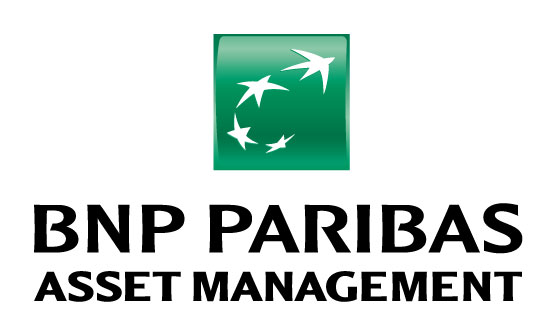
- Integrating ESG factors into central bank reserve management for portfolio sustainability and environmental alignment
- Acknowledging central government's pivotal role in fostering sustainable investment practices within central bank portfolios
- Implementing policy measures to encourage sustainable finance practices, including ESG screenings and engagement with companies, and the utilisation of green bonds
- Utilising innovative approaches for green finance, risk management, and compliance to bolster resilient financial systems
Johanna Lasker
CEO, North America and head of central banks and institutions
BNP Paribas Asset Management
Johanna is the CEO North America for BNP Paribas Asset Management (BNPP AM). She is also the Head of Central Banks and Official Institutions.
As CEO for North America, Johanna is responsible for our strategic leadership and development. She manages the growth of our business, overseeing business development, and maintaining direct oversight of management and effective governance in the region. In her capacity as Head of Central Banks & Official Institutions, Johanna’s responsibilities include managing and growing the official sector business globally, while also ensuring we are meeting our clients’ needs.
Johanna originally joined FFTW, a predecessor of BNPP AM, in 1997. She then left the firm in 2000, rejoining in 2004 to focus on the official institutions business. Since 2013, she has been the head of the Central Banks and Official Institutions team, successfully growing our client base and increasing our AUM for this sector. In addition to working for BNPP AM and FFTW, Johanna worked in the Corporate Finance division at UBS for two years, where she was an Associate Director in the Consumer Products Group in New York. She later transferred to the Global Industrial Group in Japan where she lived for a year.
Johanna has over 20 years of experience. She earned an MBA in Finance and International Business from New York University, and a BA in East Asian Studies from Stanford University. She is based in New York.
Enrico Bernardini currently works at the Climate and Sustainability Hub of Banca d'Italia after almost twenty years at Financial Risk Management Directorate, Banca d'Italia. Some recent publications are 'The impact of carbon risk on stock returns: Evidence from the European electric utilities' and 'Mind the gap: Machine Learning, ESG metrics and portfolio construction'. Research interests are in sustainable investments, ESG data and integration into portfolio management, climate risk assessment.
Michiel De Smet is sustainable investment expert in the reserves management team at the National Bank of Belgium. Previously, he launched and led the Ellen MacArthur Foundation’s Finance Initiative and was circular economy expert in the European Union’s Platform on Sustainable Finance, developing the EU Taxonomy. His previous positions include consultant at McKinsey & Company with a private equity focus, policy officer at the European Commission dealing with circular economy innovation, and project manager at the Ellen MacArthur Foundation where he worked on a circular economy for plastics. Michiel holds a PhD and Masters in mathematics (Ghent University, University of Bristol and University of Pisa).
11:45 – 12:15
Networking break
15:15 - 15:45
12:15 – 13:15
Navigating climate risk and policy: central banks' mandate in the sustainability era
12:15 - 13:15
- Assessing whether central banks require a mandate update to effectively address climate-related risks, considering the evolving perceptions
- Exploring policy angles for central banks to integrate climate risk considerations into their mandates and operations, with a focus on promoting sustainability
- Debating whether climate risk is a financial stability or fiscal issue, and its implications
- Examining how political opposition to green policies affects central banks' approaches to climate risk
Isabela Ribeiro Damaso Maia
Head of sustainability and international portfolio investors unit
Central Bank of Brazil
Responsible for transversal sustainability intelligence at the Banco Central do Brasil (BCB), co-chairs the Working Group of Tokenization of ESG assets (part of the Real Digital Project/Drex - Brazilian CBDB), leads the BCB participation for the development of the Brazilian Sustainable Taxonomy. Isabela also leads the Bank relationship with international portfolio investors and with rating agencies for Brazil's sovereign rating assessment. With more than 25 years of experience in strategic asset allocation (SAA), advising the Board on the international reserves’ investment and on enterprise-wide risk management (RM), was responsible for the development and implementation of an Enterprise Risk Management (ERM) model at the BCB and for the Brazilian international reserves’ risk management framework. Compliance and business continuity functions at the Bank were implemented under her leadership. Technical articles on SAA and RM were published in books and journals over time. Isabela holds a BA in Statistics and an MBA in Finance.
Clément Payerols is an environmental economist at Banque de France, where he is in charge of the development of climate and nature scenarios. Clément holds a MSc in Engineering from Ecole Polytechnique and a MSc in Political Economy from Sciences Po Paris and the London School of Economics.
Riccardo, in his role at the OECD Clean Energy Finance and Investment Mobilisation programme leads work related to green, sustainable finance and clean energy. Previously, he served the Committee on Financial Markets which focuses on trends and functioning of international capital markets, their development and structural issues.
His works focuses on capital markets, including financial intermediation, sovereign debt and sustainable finance. In these workstreams, he led on a number of publications analysing ESG ratings and investing, financial markets and climate transition as well as the assessment of nature-related financial risks. Additionally, Riccardo led the OECD’s Debt Transparency Initiative to develop the data repository, analysis and reporting of private sector foreign-currency lending to PRGT-eligible countries. He has a master’s degree in finance from Ca’ Foscari University (Venice, Italy).
13:15 – 14:30
Networking lunch
13:15 - 14:30
14:30 – 15:30
Weather shocks and inflation expectations in semi-structural models
14:30 - 15:30
- Outlining a way for semi-structural models to capture the key mechanisms at play when an economy is hit by weather caused by the El Niño Southern Oscillation (Enso)
- Weather creates stagflationary supply shocks making more difficult for CB to anchor inflation expectations
- The result suggests policy-makers should intervene early to correct for weather shocks, or risk an uphill battle in future
- Climate change may create higher incidence and severity of weather shocks
José Vicente is a research economist at Banco de la República, the Central Bank of Colombia. He has 20 years of experience in financial markets, central and corporate banking, financial regulation, research, and academia.
He has held positions as Head of Markets Development at Banco de la República, Director of Macroeconomic and Sectorial Analysis at Fedesarrollo (Colombia’s leading think-tank), Economist for the North Andean Region at Citi Research, and Principal Economist for Colombia at BBVA Research.
His research areas include monetary policy, central banking, macro-financial analysis, macroeconometrics, and forecasting.
Sara Naranjo, born in 1997 in Colombia, is an economist graduated from EAFIT University, and is completing her master's in data science. Currently, she works at the Bank of the Republic. Sara's research areas include monetary policy, central banking, forecasting, and climate. Sara brings her keen interest and knowledge of the economic impacts of climate change to her role at the Bank of the Republic.
15:30 – 16:00
Chairs closing remarks
15:30 - 16:00
Rianne Luijendijk is Team Lead Responsible investing at the Dutch Central Bank. She is responsible for the development and implementation of DNB’s responsible investing approach for the own-account portfolios. She also chairs the sustainable and responsible investment workstream in the Network for Greening the Financial System, in which central banks and supervisors collaborate to advance their efforts to further integrate sustainability considerations in central bank’s portfolio management. Since 2020, the workstream has published a number of reports to assist central banks in their adoption of sustainable and responsible investment practices.


